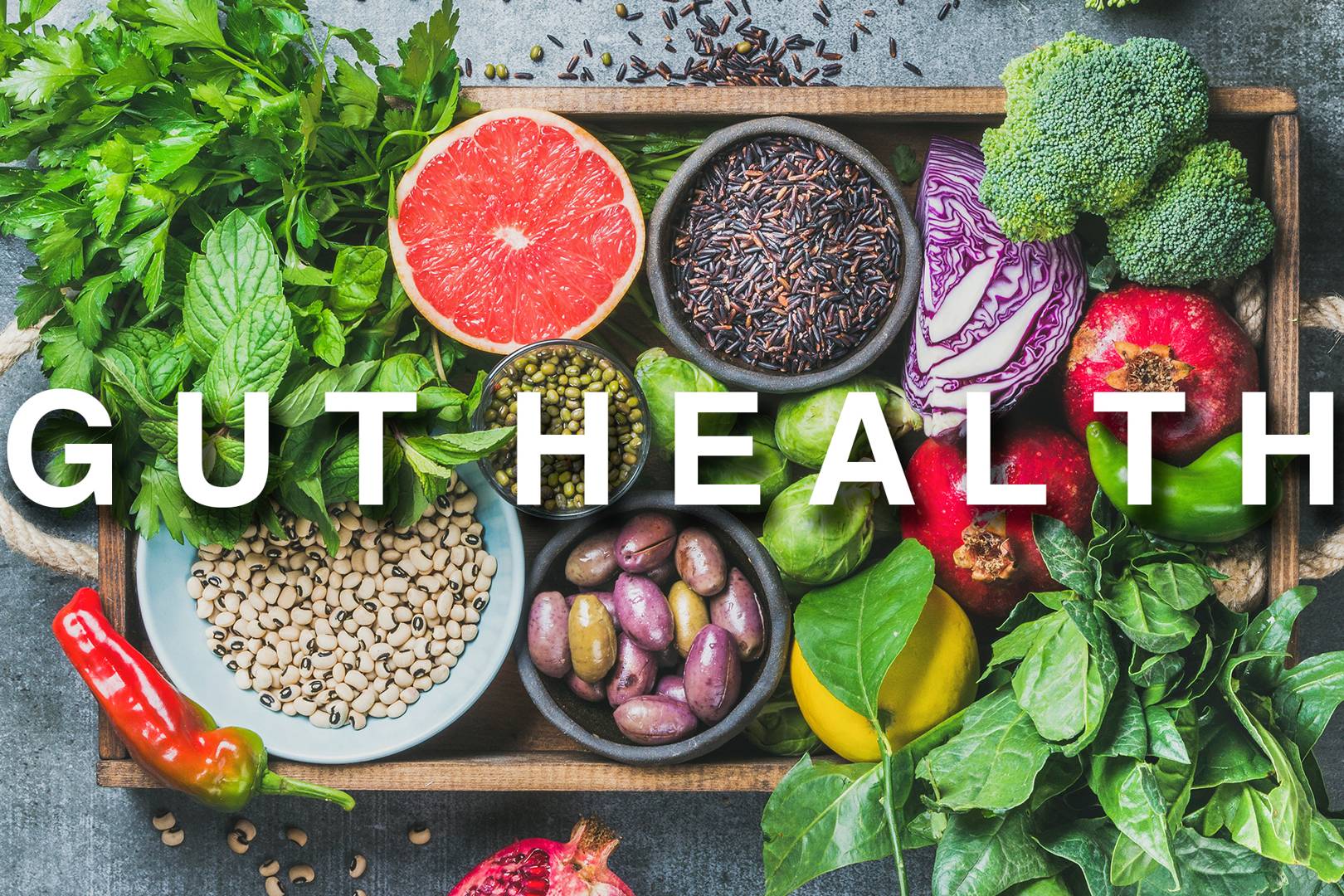
Gut Health Essentials: Your Guide to Prebiotics & Probiotics
Gut Health Essentials: Your Guide to Prebiotics & Probiotics
Simple steps to balance your gut and boost wellness

Why Gut Health Matters
People are talking about gut health and their microbiome more than they used to, but if it's not something that comes up around your dinner table, here are some basics.
When people talk about their gut microbiome, they're referring to all the microorganisms (both good and bad) living in your gastrointestinal tract (primarily your large intestine). Most people have hundreds — or even thousands — of different species of bacteria, viruses, and fungi living in their gut.
The Role of Gut Health in Overall Wellness
Your “gut” is the series of organs — mouth, esophagus, stomach, small intestine, and colon — that transform the food you eat into the nutrients your body needs to live and to thrive. If you’ve ever had an upset stomach, constipation, heartburn or gas, you know how sensitive the gut can be. These “gut reactions” can be painful, disruptive, and sometimes embarrassing.
Your gut is at the heart of your health — influencing digestion, immunity, mood, and even skin. Keeping a balanced gut microbiome is key to feeling vibrant and energized every day.
Weight Management
By helping your digestive tract process foods more efficiently, your gut can help you maintain a healthy weight. It also includes a “craving-busting” blend of probiotics and prebiotics to give your gut what it needs to thrive & keep unwanted ‘junk food’ urges at bay.
Cognitive Support
Thanks to the gut’s unique ability to support your mental health via your gut-brain axis — the important connection between your body and brain helps you enjoy a sharp mind that makes it easier to stay focused on what’s important.
Skin Support
Gut health is also directly linked to skin health and the billions of ‘beauty bugs’ are designed to support a vibrant, radiant complexion.
Sustained Energy
Your gut supports the energy-generating mitochondria in your cells to help you feel energetic and active day after day.

7 Benefits of Healthy Gut Flora
Improved digestion
Stronger immunity
Better mood and mental clarity
Healthier skin
Enhanced nutrient absorption
Support for healthy weight
Reduced inflammation

Signs of Gut Imbalance
Watch out for:
Frequent bloating or gas
Irregular bowel habits
Fatigue or low energy
Skin breakouts or irritations
Mood swings or brain fog
Common causes include diet, stress, and medications.
Lifestyle Tips for a Thriving Gut
1. Add More Fiber to Your Diet
Fiber acts as a prebiotic, feeding good bacteria and reducing inflammation. Aim for 21–38 grams per day from beans, whole grains, avocados, sweet potatoes, Brussels sprouts, tofu, berries, leafy greens, nuts, and seeds.
2. Stay Hydrated
Drink about 4–6 cups of water daily to aid digestion, nutrient absorption, and prevent constipation, which impacts gut microbiota diversity.
3. Manage Stress
Stress affects digestion through hormones like cortisol and adrenaline. Try belly breathing, relaxation therapy, or meditation to calm your gut-brain connection.
4. Get Enough Sleep
Seven to nine hours of sleep supports gut bacteria diversity and overall wellness. For better rest, improve sleep hygiene and incorporate stress management.
5. Stay Physically Active
Engage in 150–270 minutes of moderate-to-high intensity aerobic and resistance exercise weekly to boost gut microbiota health—even if you’re starting fresh.
What Are Prebiotics and Probiotics?
Prebiotics are the fiber-rich foods that feed the healthy bacteria in your gut. Probiotics are the live beneficial bacteria themselves. Together, they work in harmony to support a thriving gut ecosystem.
Prebiotic & Probiotic Food Sources

PREbiotics
This uniquely powerful form of fiber nourishes the “good bacteria” that live in your gut and help with digestion. By feeding these helpful bacteria, you can help them “crowd out” bad bacteria that can cause discomfort, bloating and other frustrating stomach issues.

PRObiotics
You may have tried probiotics before and been disappointed — and that’s extremely common, for 2 reasons. The first is that without prebiotic fiber to feed them, probiotics will simply die in your gut. The other is that there are over 500 strains of bacteria considered “probiotic,” but only some will make a real difference for your health. For Bio Complete 3, Dr. Gundry has hand-picked 2 specific strains to help you feel more energetic, enjoy smooth digestion, & even help your body burn fat.
Which Probiotics Strains are Best?
When it comes to probiotic strains, not all are created equal. And while there are as many as 500 different strains, only a handful have substantial research supporting health benefits.23 Below are the ones we feel can give you real results.
1. Lactobacillus Gasseri
Healthy Weight Support: A review of over a dozen human randomized controlled trials concluded that L. gasseri supports healthy weight management. Other studies have shown this strain to support the reduction of fatty tissue and improve metabolism.
Bone Density: Shown to have anti-menopausal effects by increasing bone mineral density and lowering pain sensitivity.
2. Lactobacillus Rhamnosus
Diarrhea: Helps protect against various causes of diarrhea, including acute watery, antibiotic-related, and traveler-diarrhea.
Vaginal Yeast Infections: Reduces the risk of yeast infections by helping inhibit the overgrowth of the harmful bacteria Candida albicans, the most common cause of genital yeast infections.
Mood & Anxiety: Lowers anxiety, reduces stress and boosts mood by changing the expression of the chemical messenger, GABA, which communicates with the brain and produces a calming effect.
3. Lactobacillus Reuteri
Leaky Gut: Helps to strengthen and repair the intestinal barrier, which, when damaged, can allow harmful bacteria to enter the body and cause bloating, gas, cramps, and food sensitivities.
Urinary Tract Infections: Provides female support to combating and easing the effects of Urinary Tract Infections (UTI’s).
Dental Health: As one of the few probiotics found in the mouth, studies have shown it helps deter the growth of Streptococcus mutans, the bacteria which causes tooth decay.
H. Pylori Defense: May help reduce the presence of Helicobacter pylori (H. pylori), a harmful bacteria which researchers have linked to peptic ulcers and other digestive diseases.
4. Lactobacillus Acidophilus
Dairy Defense: Produces lactase, the enzyme needed to break down the sugar in milk called lactose, helping alleviate diarrhea.43
Mineral Absorption: Helps to increase the absorption of minerals such as iron, calcium, and magnesium.45,45
Vaginal Health: Produces high lactic acid levels, promoting an acidic environment in the vagina necessary to keep proper bacterial balance and helping to avoid the harmful condition known as Bacterial Vaginosis (BV).46
5. Bifidobacterium Bifidum
Constipation: Fights chronic constipation by increasing production of mucus in the colon supporting smoother bowel movements.47
Allergy Relief: Reduces allergy symptoms by discouraging histamine production, the chemical that triggers an allergic reaction.48
***Stack Tip: Look for a formula that pairs L. Acidophilus with B. Bifidum, as they have been shown to work well together to fight off the harmful effects of antibiotics.
6. Bifidobacterium Longum
Gluten Defense: Shown to help reduce gastrointestinal symptoms in those with Celiac disease (CD) by reducing intestinal inflammation.49-51
Liver Health: Human clinical studies show that B. longum paired with the prebiotic FOS plays a beneficial role in combating fatty liver.52,53
Immune Support: Helps to strengthen the body’s natural defenses against harmful pathogens and improve resistance to respiratory tract infections.54,55Feed and nurture your gut with:
Probiotic-rich foods: Yogurt, kefir, kimchi, sauerkraut, miso
Prebiotic-rich foods: Garlic, onions, bananas, asparagus, oats
Supplement Guide: How to Choose Effective
One of the fastest-rising supplement categories today is probiotics. These are live microorganisms, which are the “good” bacteria that help keep the “bad” bacteria in your stomach from overgrowing. Probiotics have been used in different forms going back hundreds of years to improve digestion and provide overall well-being.
This new popularity has led to hundreds of probiotic supplements flooding the marketplace. While these supplements all promise to deliver benefits, the reality is that too many fall short. Some of the most popular brands use ineffective types of probiotics or insufficient dosages. Others use strains of probiotics that do not have enough scientific evidence to support their claims. To make matters worse, we found that some popular probiotic supplements contain potentially harmful fillers.
3 Things To AVOID When Buying A Probiotic Supplement
1. LACK OF STRAIN DIVERSITY
Clinical studies have shown that specific probiotic strains can help with particular health concerns.19,20 While the human gut contains thousands of different bacterial strains, most probiotics only include a few generic Lactobacillus or Bifidobacterium strains. Look for a probiotic that has at least 14 unique strains to support proper microbiome balance.
2. CHEAP GENERIC STRAINS
Store shelves are filled with brands selling probiotics, listing cheap generic forms of popular strains on their labels. A 2018 study showed that not all probiotic strains produce the same results, even if they have the same name.21 Like most things in life, it all comes down to the details.
A high-quality brand will list the strain and a combination of letters and numbers, such as L. acidophilus La-14TM, known as a substrain. This unique identifier tells you that one or more clinical studies back the strain being used. Avoid probiotics that don’t list substrains, as that could be a warning sign that low-quality, generic, and possibly ineffective strains are used in the formula.
3. PLASTIC BOTTLES
Moisture vapor transmission rate (MVTR) studies on probiotics packaged in plastic bottles have shown that they can allow too much moisture to enter, causing lower strain survival rates and a shorter shelf life overall.
Supplements
For best results:
Pick supplements with researched strains and adequate CFUs
Consider combined prebiotic & probiotic formulas
Match supplements to your goals—whether that’s digestion, immunity, or mood support
Top picks:
Culturelle Daily Probiotic
Garden of Life Raw Probiotics
Bio-K+ Probiotics
Prebiotin Prebiotic Fiber
FAQs
Can I take prebiotics and probiotics together? Yes, combining them is highly effective!
When should I take probiotics? With meals to improve survival through stomach acid.
Is daily probiotic use safe? Yes, it’s generally safe for most people.
